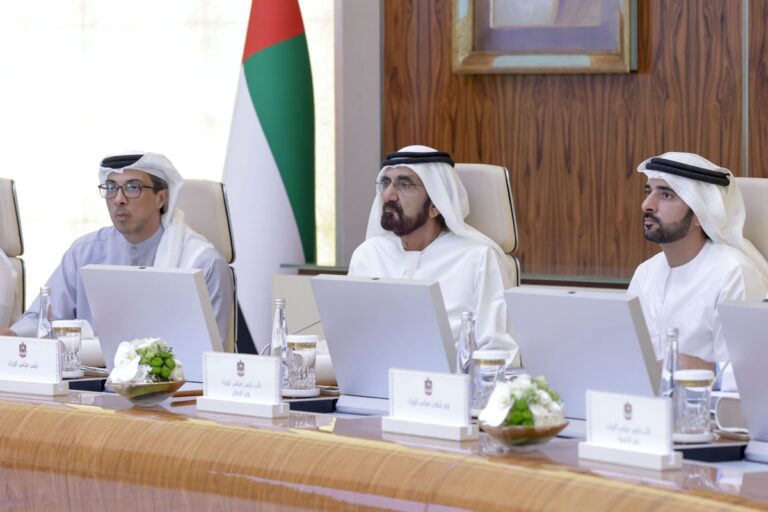The UAE has approved a new economic cluster policy as it looks to boost GDP by more than $8bn a year and generate over $4bn in foreign trade.
Sheikh Mohammed bin Rashid Al Maktoum, Vice President, Prime Minister of the UAE and Ruler of Dubai, chaired a Cabinet meeting at Qasr Al Watan in Abu Dhabi, where major new national policies and strategies were approved.
Among the most significant was the National Policy for Economic Clusters, a framework to establish interconnected industries and services across the UAE.
The initiative is expected to contribute more than AED30bn ($8.2bn) annually to GDP and increase foreign trade value by AED15bn ($4.1bn) within seven years.
It will also strengthen innovation ecosystems and enhance the UAE’s competitiveness in sectors such as financial services, tourism, space, food, and communications.
UAE economic clusters
Sheikh Mohammed said: “Today, I chaired the first Cabinet meeting of the new government season at Qasr Al Watan, which we hope will be a season of prosperity, progress, and growth for our nation.”
The National Policy for Economic Clusters is a strategic framework designed to boost economic growth and improve the competitiveness of the UAE’s economy at both the macro and sectoral levels by means of establishing clusters of interconnected industries, services, and the organisations associated with them, in specific geographic areas.
The economic clusters policy will leverage multiple advantages, including natural resources, geographic location, business environment, and integrated links, in addition to leading companies and mature and advanced economic sectors.
The policy will strategically establish economic clusters nationwide in key sectors, including financial services, tourism and hospitality, space, communications and data analytics, and food.
More key approvals from the Cabinet
- UAE Government Annual Meetings: To take place on November 4–6 in Abu Dhabi with 500 senior officials, focusing on education, healthcare, economy, national identity, and AI applications
- UAE Council for Integrative Medicine: Chaired by Sheikha Salama bint Tahnoon bin Mohammed Al Nahyan, the council will combine modern medicine with traditional practices to improve holistic healthcare
- Genomics and healthcare: The UAE Genomics Council reported over 750,000 participants in the National Genome Programme and more than 8,500 trainees, alongside the launch of premarital medical screening programmes
- Sustainability and aviation: The updated National Plan for Reducing Aviation Emissions was approved, alongside reviews of the National Environmental Policy and the National Air Quality Agenda 2031
- Cybersecurity: A comprehensive package of national cybersecurity policies was approved, strengthening digital resilience and aligning with global best practices
- Education: Public school readiness for the 2025–2026 academic year was confirmed, covering 283,920 students across academic, staffing, and facility readiness
- Legislation: The Cabinet approved the regulatory framework for electric vehicle charging stations, consumer protection rules, and tax procedures including VAT mechanisms on scrap metal
- Diplomacy and international relations: The UAE ratified 76 international agreements covering trade, investment, aviation, financial cooperation, AI, food safety, and digital transformation
- Global events: The UAE will host 12 major international events, including World Maritime Day 2025 and the International Conference on AI in Sports
Sheikh Mohammed concluded: “All national teams are advancing their plans as intended, performance indicators confirm the success of their efforts, and every sector of our economy is progressing in line with the vision set by the President of the UAE.”

